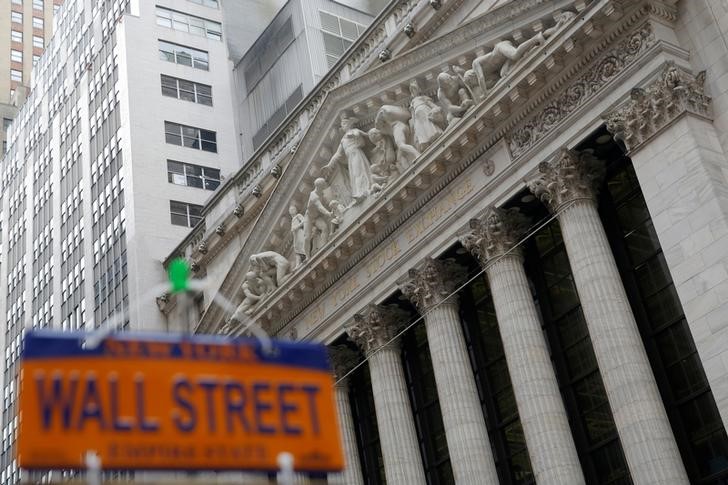By Geoffrey Smith
Investing.com -- U.S. stock markets opened clearly higher on Friday, as impressive results from two big social media names after Thursday's close reinforced the sense that a consumer-led recovery is still very much intact.
By 9:40 AM ET (1340 GMT), the Dow Jones Industrial Average was up 221 points, or 0.6%, at 35,045 points. The S&P 500 was also up 0.4% and the Nasdaq Composite, which hit a fresh record high on Thursday, added another 0.1%.
The market was lifted by strong results from Snap (NYSE:SNAP), the parent of Snapchat, and Twitter, which gave fresh reassurance that the reopening of the economy was unlocking pent-up animal spirits. Snap stock rose 24% after posting its strongest revenue growth in four years, Since the start of the pandemic, it's now gone from a low of below $8 to a current price of $78.
Twitter (NYSE:TWTR) also beat expectations with its earnings on Thursday but it rose a less spectacular 1.8%. The read-across from Snap's report also benefited Facebook (NASDAQ:FB) stock, which rose 2.0%, and Pinterest (NYSE:PINS) stock, which rose 4.9%.
The macro backdrop remained favorable: reports of fresh measures by the Biden administration drafting new measures to stop foreclosures provided more evidence that policymakers are unwilling to withdraw any of the emergency support measures that has so far gotten the U.S. economy through the pandemic. The underpinning of household incomes is widely seen as one of the factors allowing U.S. companies to pass on higher input costs to consumers without fear. Starbucks has been the latest to illustrate that trend, rising over 8% in a week when coffee futures have skyrocketed due to frost in Brazil that has cast huge doubt over the harvest this year - and for a couple of years to come - in the world's biggest producer. Starbucks (NASDAQ:SBUX) stock was up 1.3% in early dealings.
However, it wasn't all one-way traffic: Intel (NASDAQ:INTC) stock fell 5% after the chipmaker's guidance for the rest of the year hinted at further loss of market share in the data center chip segment, typically a higher-margin business. Boston Beer (NYSE:SAM) stock fell 26% after the brewer was forced to cut its guidance only three months after raising it.
And no day is complete without another regulatory shock in China hitting the country's New York-listed ADRs. After the recent pile-on against Internet platform companies such as Didi Global (NYSE:DIDI)and Tencent (HK:0700), It was the turn of the educational technology companies on Friday, after Bloomberg reported that Beijing is mulling a move to make companies that offer tutoring on the school curriculum to go non-profit. TAL Education (NYSE:TAL) ADRs and New Oriental Education & Technology (NYSE:EDU) ADRs both fell 60% on the report. The move did nothing to reassure investors about the outlook for other Chinese ADRs, with ride-hailing giant Didi falling another 16% to a new record low.
Oil and gas stocks were also mostly lower, after oilfield services giant Schlumberger (NYSE:SLB) suggested that a sustained upturn in U.S. oil production is unlikely in the second half the year. It forecast international revenue would rise by more than 10% from a year earlier. But Chief Executive Olivier Le Peuch said revenue growth at its North American business was likely to slow from the 11% quarter-on-quarter rate seen through June.
